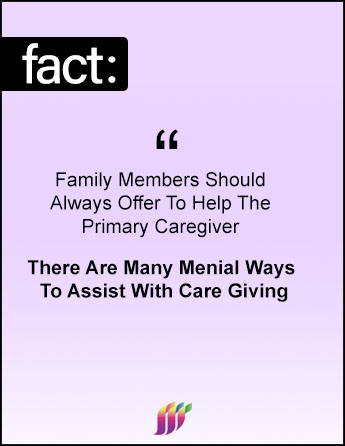Coping With Anxiety After Diagnosis and Treatment

Listen to Article
Share this Article: [social-share align=”left” style=”icon” size=”m” nospace=”no” animation=”no” counters=”0″ buttons=”facebook,twitter,mail,messenger”]
By: Julia Brabant
July 2022
It’s normal to feel a wide range of emotions after a pancreatic cancer diagnosis. For many patients, shock comes first. Once the shock subsides, you may prioritize your physical well-being, rather than your emotional state, as you become increasingly overwhelmed by tests, treatments and other issues directly related to your diagnosis.
Yet, failing to address the anxiety and stress-related aspects of a pancreatic cancer diagnosis, or any type of cancer diagnosis, has the potential to impact your emotional health, your physical health, your personal relationships and even your recovery.
Understanding The Impact of Anxiety and Stress Has On Your Body
Receiving a diagnosis of pancreatic cancer is one of the most stressful things many people ever have to go through. Yet, you may also find that other parts of cancer journey also cause you distress. Many patients feel ill-at-ease as important dates approach, such as surgery dates or appointments for new screenings. Waiting for test results is also a common cause of anxiety. You may also face persistent worries about the conclusion of your treatments or the possibility of your cancer coming back after doctors determine you cancer-free.
Your body may also have a physical reaction to stress. For example, many patients experience nausea or vomiting when they face high levels of stress. Some also report feeling more pain when they are overwhelmed emotionally. Many also say that their elevated stress and anxiety levels keep them from sleeping at night, which can lead to a host of other health issues.
Recognizing Signs of Depression & Anxiety
Depression is common among pancreatic and other cancer patients, but it is treatable. The following are common signs of depression. If you experience one or more of these signs and it persists for two weeks or longer, talk to your doctor about possible treatment options. Common signs of depression include:
- Persistent feelings of sadness or numbness
- Nerves or shakiness
- Trouble concentrating
- Uncharacteristic bouts of crying
- Lack of interest in the things you once enjoyed
- Thoughts about self-harm
- Rapid weight gain or loss unrelated to treatment
- Sleeping too much or too little
- Persistent fatigue
After assessing your condition, your doctor should recommend you take medication to help combat your feeling of depression. Or, he or she may recommend you undergo other treatment methods, such as cognitive behavioral therapy to help ease your symptoms.
Managing Your Symptoms
While it may benefit you to seek professional counseling, help to manage your emotions and anxiety, it may also help to do the following.
- Avoid Blaming Yourself
Doctors still don’t know exactly why some people get pancreatic cancer and others don’t. So, don’t waste time blaming yourself for something that you likely had no control over.
- Don’t Hide Your Emotions
Concealing your emotions may cause them to eventually boil over. If you don’t want to talk to friends or family, consider joining our support group where other pancreatic cancer patients have a genuine understanding of what you’re facing.They have walked similar paths and have a keen perspectives of the difficulties you deal with.
- Control What You Can
Some pancreatic cancer patients feel at their best when they maintain control over their journeys. Stay atop of your schedule and try to cross a few things off of your to-do list each day to give yourself a sense of accomplishment.
- Talk When You Want, and Don’t When You Don’t
If you’re sick of others constantly asking about your condition, know that you’re not alone. Most of these questions come from a well-meaning place. Yet, they can also prove emotionally exhausting, so know that it’s OK to change the subject when you don’t feel like carrying on yet another conversation about your cancer.
Sometimes, even after taking these steps, it helps to get support from outside sources.
Finding Support and Relief From Stress and Anxiety
Many pancreatic cancer patients find strength in the fact that they are not alone in their struggles. Consider turning to the following when you could use some emotional support.
- Support Groups
Pancreatic cancer support groups such as ours come in all shapes and sizes. A support group may be a good fit for you if you need a place to vent or want to feel more hopeful and less alone. It may also be a good way for you to gain access to knowledge, awareness and resources that helped others facing similar circumstances.
- Mental Health Professionals
Psychologists, psychiatrists and palliative care professionals are among those who may be able to help you work through the emotions and distresses brought on by your cancer diagnosis.
- Spiritual or Religious Resources
Some pancreatic cancer patients take comfort in praying or finding other religious or spiritual customs to help combat the emotional effects of a cancer battle.
- Social Services
If some of your stress and anxiety is the result of, say, trying to find a place to stay during cancer treatments or trying to find rides back and forth to them, there may be social and support services in your respective communities there that can help you.
- Exercise
Exercise is safe and healthy for most pancreatic cancer patients. It can also have a significant effect on your emotional well-being. Moderate levels of exercise can make you more alert, and even taking a walk around the neighborhood or among the trees can positively boost your emotional state.
- Creative/Alternative Therapies
While talking to a qualified professional can help you sort through tough emotions, so, too, can taking part in therapies or activities know to help alleviate stress. For example, equine therapy, or therapy involving horses, helps reduce feelings of anxiety and depression in some patients. Other patients find that yoga, art, dance and music have similar mood-boosting effects.
Fighting cancer is never easy, and the emotional toll it takes can be as severe as the physical one. Yet, some pancreatic cancer survivors say they come out on the other side with a new appreciation for the people and things they love – and the time they now have to enjoy them.










